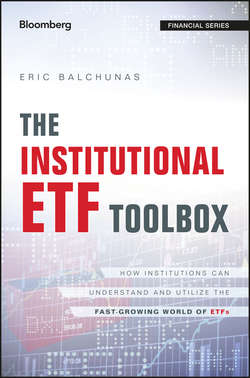Читать книгу The Institutional ETF Toolbox - Balchunas Eric - Страница 11
На сайте Литреса книга снята с продажи.
SECTION I
The ETF Phenomenon
CHAPTER 1
Why Are ETFs So Popular?
Tax Efficiency
ОглавлениеWhile there are few minor exceptions, ETFs overall have a near-perfect record of not issuing capital gains taxes that can plague mutual funds and hedge funds. Obviously, this advantage means zilch for an institution that is tax exempt. But as you go beyond tax-exempt institutions, it matters and is certainly, by anyone’s standards, a nice residual benefit of the ETF and worth an explanation.
When there are large redemptions in a mutual fund, the manager must go and sell some stocks in the fund in order to cash out the big investor. Selling those stocks for a gain can trigger a tax event for the fund, which affects all of the existing investors. In other words, the good soldiers who stayed in the fund have to foot the tax bill of the people leaving. Alternatively, the fund manager could keep cash on the side for redemptions, but then they have cash drag on returns.
In contrast, when someone sells their shares of an ETF in the open market for a gain, that is on them and it does nothing to affect investors in the ETF. This is due to the way ETFs shares are created and destroyed using an “in-kind” method which we will learn about in Chapter 3.
The bottom line is ETFs shift the tax burden onto the seller, not the existing shareholders. This makes ETFs even more tax efficient than traditional index funds, as seen in Table 1.5.
Table 1.5 Asset-Weighted 5-Year Average Capital Gains Ending 2011
Source: Morningstar, Inc.
